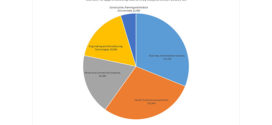This is the 18th instalment in a series of blogs that provide information on occupational roles that employers struggle to fill. In this article we take a look at the role of the nuclear medical scientist.
There are regional differences in the skills and occupations where employers are experiencing shortages and throughout this series we will endeavor to provide information on where the greatest demand for the occupations and skills exist geographically.
What does a nuclear medical scientist do?
Nuclear medicine involves the use of small amounts of radioactive substances to diagnose and treat patients.
How nuclear medicine works
A small amount of the radioactive substance (radiotracer) is injected into, swallowed or inhaled by the patient. This accumulates in the area of the body being examined and a special camera or imaging device is used to see what is going on.
How do you get a job as a nuclear medical scientist?
If you are or are intending to study on a technical / vocational programme, then it is very important that you check whether these qualifications will be accepted and not all higher educational courses in healthcare science will.
There are two main routes into a career as a nuclear medical scientist – A-levels which include science, followed by an accredited BSc Degree programme in healthcare science which allows you entry to the Practitioner Training Programme, or, you could gain a degree in physics first and then join the PTP through the graduate diploma in healthcare.
The Practitioner Training Programme takes three years to complete and consists of academic study combined with 50 weeks of work-based training. The PTP starts off broad and with each year that passes you specialise further.
The skills that you need as a nuclear medical scientist
To succeed as a nuclear medical scientist you need to:
· Be calm
· Be sympathetic
· Be confident with technology
· Have a good academic background
· Have good communication skills
· Pay attention to detail
· Be able to work as part of a team
· Be committed to NHS values
See skills shortage occupation 17
 Moving On magazine Careers and Qualifications for School Leavers
Moving On magazine Careers and Qualifications for School Leavers

